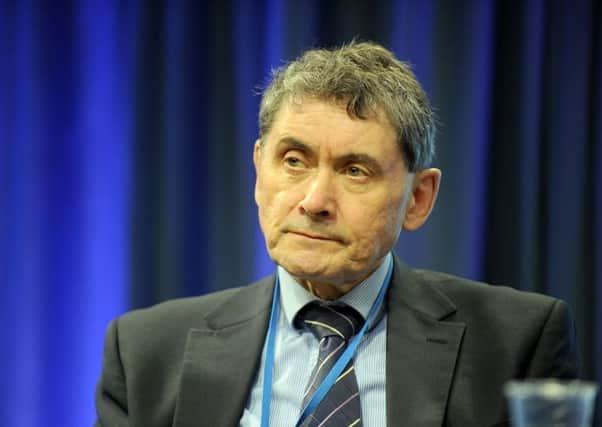Scientists have just made a great leap forward for type 2 diabetes – Harry Burns


Until the 1920s, people diagnosed with diabetes usually did not live long. As their blood sugar increased, they would lapse into a coma and die within days. In the late 1800s, researchers realised the problem lay with the pancreas. They discovered that diabetes was associated with a failure of the pancreas to produce a particular hormone from cell clusters in the pancreas called “islets of Langerhans”. Once discovered, the hormone was called insulin, from the Latin word insula, meaning “island”.
By 1921, researchers in Toronto had isolated insulin and the first person to be injected with it was a 14-year-old boy called Leonard Thompson who was in a coma and close to death. Within hours of receiving insulin, he was awake and his blood sugar had dropped close to normal. This was a stunning result.
Advertisement
Hide AdAdvertisement
Hide AdIt is said that the wards echoed with shouts of joy from parents as their children awakened from what they assumed to be a final coma. The pharmaceutical industry soon learned to manufacture insulin and many millions of people with diabetes owe their lives to this discovery.
Since the discovery of insulin, different types of diabetes have been described. The commonest, type 2 diabetes, generally occurs in adults and is often associated with obesity. It is usually controlled by a combination of diet and drugs. Until recently, this common type of diabetes had been thought to be a life-long condition.
A group of researchers, led by Professor Mike Lean of Glasgow University and Professor Roy Taylor of Newcastle University, have published the results of a clinical trial – the DiRECT study – in people with type 2 diabetes.
The results suggest it might be possible, in patients who lose significant amounts of weight, to put type 2 diabetes into remission, allowing them to come off treatment. Volunteers aged 20 to 65 who were overweight and who had been diagnosed with type 2 diabetes less than six years previously were randomly allocated to an intervention group, which received a low-calorie diet of 800 calories a day and had their drug treatment stopped and a control group which received standard weight management support.
Advertisement
Hide AdAdvertisement
Hide AdSome 306 individuals were recruited. After 12 months, remission of type 2 diabetes was achieved in 68 (46 per cent) of participants in the intervention group and six (four per cent) participants in the control group. None of 76 participants who gained weight experienced remission. The more weight that was lost, the greater the chance of remission. Of the 89 people who lost up to 5kg, only six experienced remission. Of those who lost more than 15kg, 31 of 36 people – 86% – went into remission. Quality of life improved in the diet group and deteriorated in those receiving standard treatment.
Considerable advances have been made over the past century in the treatment of diabetes. New technology has made control of diabetes more effective, reducing the risk of complications. In those whose diabetes is related to obesity and who have been recently diagnosed, the DiRECT study suggests the possibility of achieving remission. Could this mean a long-term cure if weight loss is maintained? Time will tell.
The vision of charity Diabetes UK is “a world in which diabetes can do no harm”. It is certainly less likely to do harm if it can be put into remission. This study may point the way for many patients to transform their lives for the better.
Professor Sir Harry Burns is director of global public health at Strathclyde University
